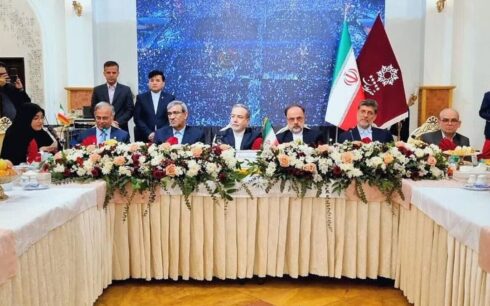State Department Spokesperson Ned Price said on Wednesday the US believes al Qaeda leader Seif al-Adel is based in Iran.
The department’s Rewards for Justice program is offering up to $10 million for information on Adel, who it says is a member of “al Qaeda’s leadership council” and heads the organization’s military committee.
“A couple of points. First on Seif Al-Adel, our assessment aligns with that of the UN. The assessment that you referenced, that Seif al-Adel is based in Iran. When it comes to his presence there, offering safe haven to al Qaeda is just another example of Iran’s wide ranging support for terrorism, its destabilizing activities in the Middle East and beyond,” Price told reporters.
“When it comes to other al Qaeda members, including those who are in Afghanistan, our message is twofold. One, to the Taliban, the Taliban has a commitment. It has made private commitments, it has made public commitments to uphold. That it would not allow Afghanistan’s territory to be used as a safe haven for those who would plot against the United States. Our second point is that we are prepared, willing and able to take action ourselves. If the Taliban is unable or unwilling to fulfill the commitments that it has made,” he added.
A new report from the United Nations, based on member state intelligence, concludes Saif al-Adel “is now the de facto leader of al-Qaeda, representing continuity for now.”
According to the report, al-Adel appears to have quietly taken over as leader after the killing of the group’s former leader Ayman al-Zawahiri in an airstrike in Kabul six months ago.
Al-Qaeda itself has been quiet about the status of its leadership following the July 31, 2022, strike that killed al-Zawahiri, but the report points to two reasons for the silence.
The report states Al-Adel’s leadership “cannot be declared because of al-Qaeda’s sensitivity to Afghan Taliban concerns not to acknowledge the death of al-Zawahiri in Kabul and [al-Adel’s] presence in the Islamic Republic of Iran.”
“His location raises questions that have a bearing on al-Qaeda’s ambitions to assert leadership of a global movement in the face of challenges,” including from its rival, the Islamic State (Daesh), the report adds.
VOA reports that Western intelligence agencies, including those in the United States, have long viewed al-Adel as a likely successor to al-Zawahiri, describing the former Egyptian special forces officer as a capable commander with vast operational experience in multiple locations.
Starting in the early 1990s, al-Adel was part of a team that provided military and intelligence training to fighters in Afghanistan, Pakistan and Sudan.
He also helped train members of al-Qaeda’s Egyptian affiliate, Egyptian Islamic Jihad, and Somalis who battled U.S. forces in Mogadishu from 1992 to 1994.
The U.S. indicted al-Adel in 1998 for his role in planning the deadly bombings of the U.S. embassies in Dar es Salaam, Tanzania, and Nairobi, Kenya, which killed 224 people and wounded thousands more.
Al-Adel is also a longtime member of al-Qaeda’s senior leadership council, the Majlis al-Shura, as well as a senior member of the group’s Hittin Committee, charged with governing al-Qaeda’s global operations.
The UN report indicates that al-Adel’s take over of al-Qaeda has been somewhat smooth, and also that al-Qaeda’s propaganda efforts have become “more sophisticated and prolific” in recent months.
Some UN member states indicate al-Adel has been able to solidify or increase control over some al-Qaeda affiliates.





